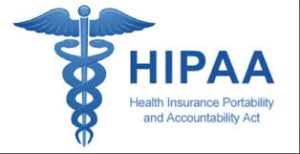
What is HIPAA?
HIPAA, (the Health Insurance Portability and Accountability Act)¹, was originally created in 1996, with an original purpose to protect and secure an individual’s medical information electronically. HIPAA works to combat against abuse and fraud from the healthcare industry.
Who Does HIPAA Apply To?
The point of HIPAA is to protect privacy rights of patients from disclosures by health care professionals and corporations. The provisions of HIPAA only apply to health care providers, health care companies, and some employers². HIPAA does not restrict the activities of anyone who does not belong to one of those categories.
Can You Violate HIPAA If You Are Not a Healthcare worker?
HIPAA only applies to healthcare professionals and listed employers. “Covered entities”, such as health care providers and services, are the entities required to comply with HIPAA. Because many employers and companies started to provide health insurance to their employees, the Privacy Rule ³ was added to the Act in December, 2000 with the purpose of keeping employee’s private information safe.
Can HIPAA Be Weaponized By the Government to Prevent Private People from Exercising the First Amendment Right to Freedom of Speech?
No. The First Amendment provides several rights owed to every citizen, including the right to free speech. HIPAA does not apply to the actions of those not associated with the healthcare industry. Specifically, nothing found in HIPAA limits the free speech rights of people in a carceral setting, including those committed to a so-called “sex offender civil commitment” facility.
Endnotes
¹ Public Law, the Health Insurance Portability and Accountability Act, (Aug. 21, 1996.)
² HIPAA Journal, Who Does HIPAA Apply To?, (Oct. 31, 2017.)
³ U.S. Department of Health & Human Services, HIPAA Privacy Rule, (Dec. 28, 2000.)




